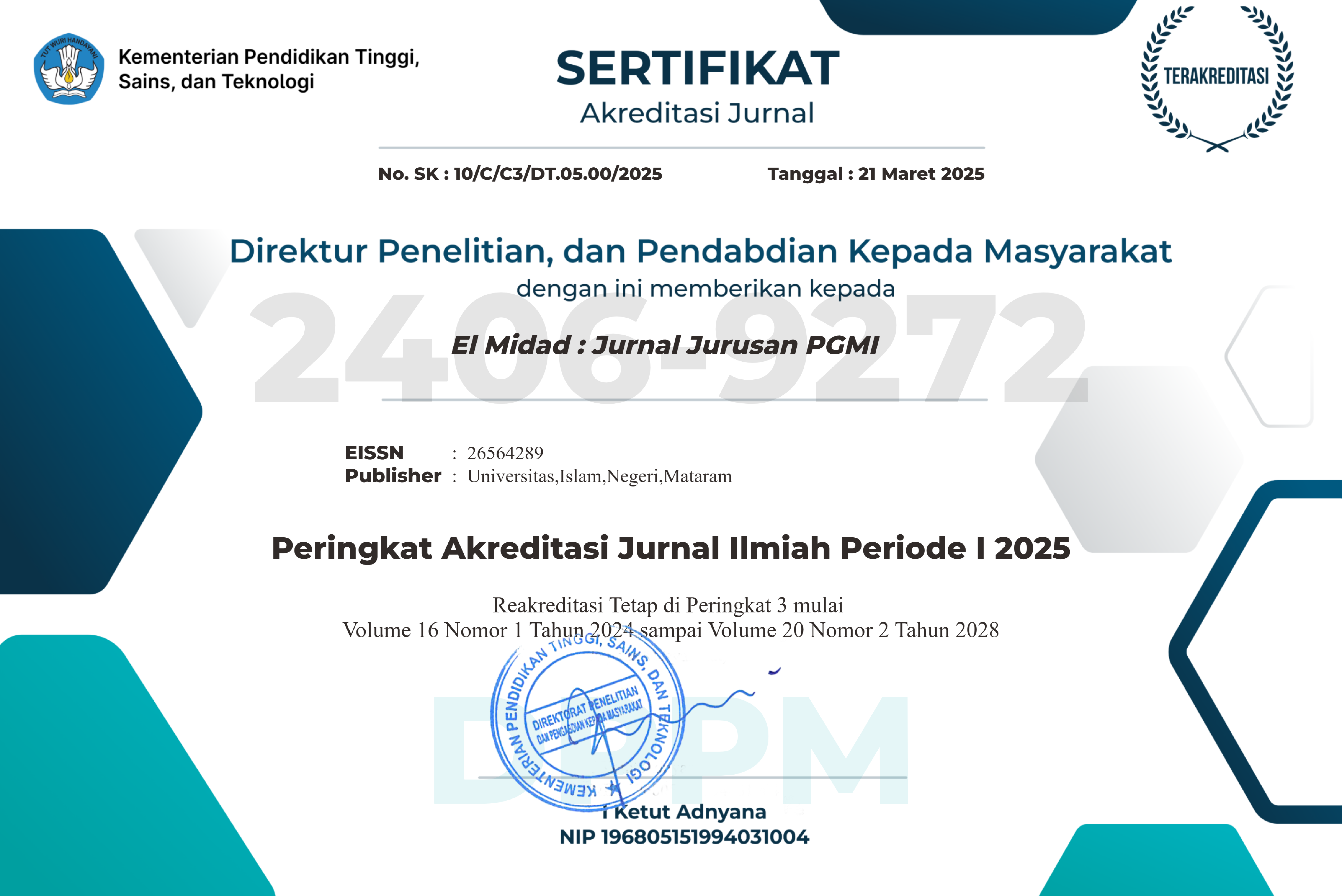ENVIRONMENTAL LEARNING THROUGH THE DEVELOPMENT OF VIRTUAL REALITY-BASED COMPOSTING MODULES IN ELEMENTARY SCHOOLS
DOI:
https://doi.org/10.20414/elmidad.v17i2.13844Keywords:
environmental awareness, compost, module, virtual reality, vr, elementary schoolAbstract
This study aims to develop a Virtual Reality (VR)-based composting learning module to foster environmental awareness among elementary school students and overcome the limitations of conventional learning, which is theoretical in nature. This study uses the Research and Development (R&D) method with the ADDIE model (Analysis, Design, Development, Implementation, Evaluation). The research subjects are fifth-grade students at SDIT Wildan Mukholladun. Validation results indicate that the developed module is highly suitable for use, with a percentage of 97.65%, meaning the media can be used without revision. The module is considered practical by both teachers and students and easy to use in learning activities, with an average percentage of 80% for both groups. Effectiveness testing through comparison of pretest and posttest scores shows an improvement in students' understanding, with effectiveness ratings in the moderate category. This was determined based on the N-Gain Score calculation, which showed a value of 0.303 for the small class and 0.301 for the large class. The module was deemed capable of providing an immersive and contextual learning experience, as well as supporting the cultivation of an environmentally conscious attitude among elementary school students.
Downloads
Downloads
Published
Issue
Section
License
Copyright (c) 2025 Surayanah, M. Zainnudin, Yuniawatika, Marsanda Avilia Putri, Alfi Mayasari, Lestariningsih

This work is licensed under a Creative Commons Attribution-ShareAlike 4.0 International License.





